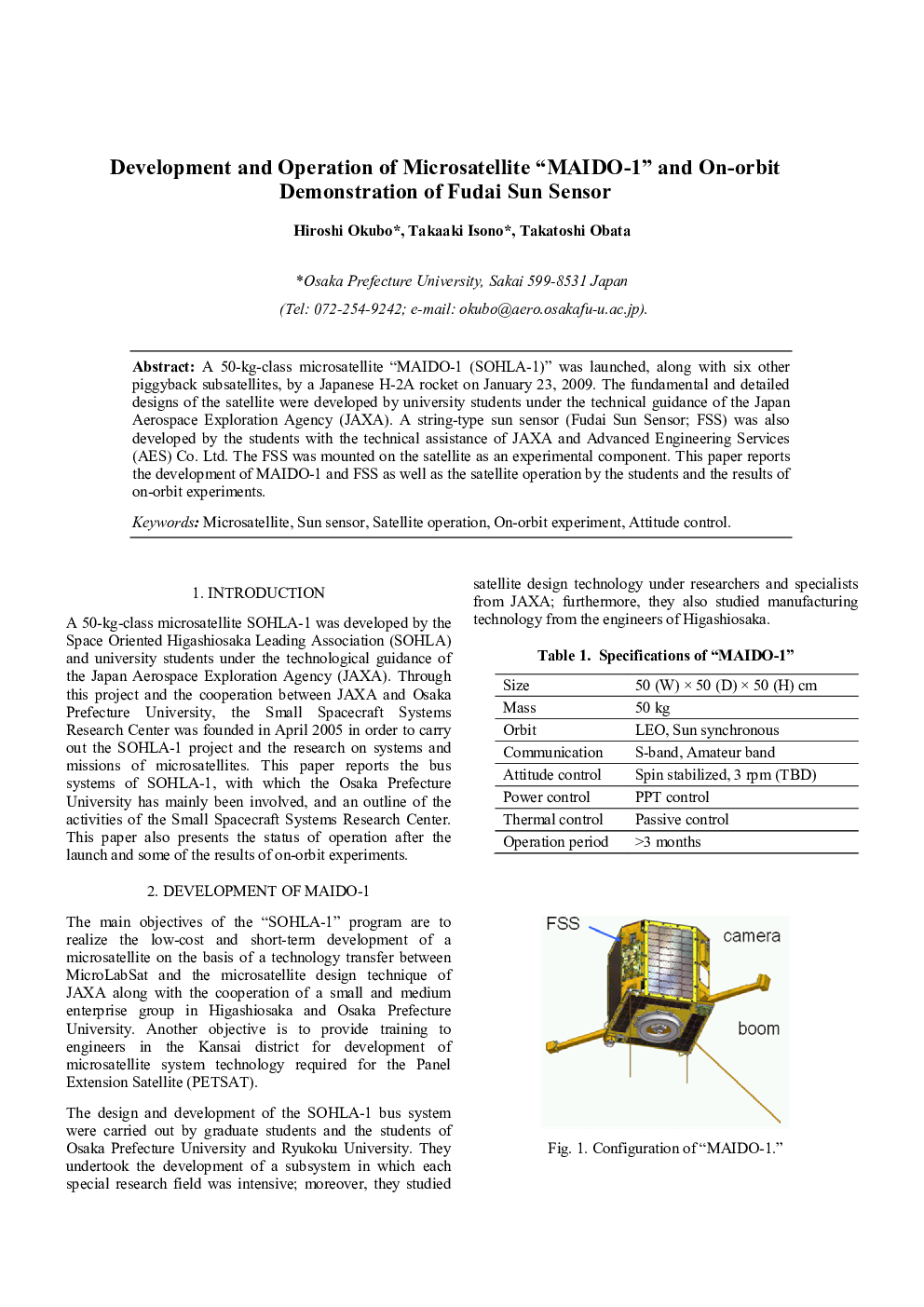| Article ID | Journal | Published Year | Pages | File Type |
|---|---|---|---|---|
| 716069 | IFAC Proceedings Volumes | 2010 | 6 Pages |
Abstract
A 50-kg-class microsatellite “MAIDO-1 (SOHLA-1)” was launched, along with six other piggyback subsatellites, by a Japanese H-2A rocket on January 23, 2009. The fundamental and detailed designs of the satellite were developed by university students under the technical guidance of the Japan Aerospace Exploration Agency (JAXA). A string-type sun sensor (Fudai Sun Sensor; FSS) was also developed by the students with the technical assistance of JAXA and Advanced Engineering Services (AES) Co. Ltd. The FSS was mounted on the satellite as an experimental component. This paper reports the development of MAIDO-1 and FSS as well as the satellite operation by the students and the results of on-orbit experiments.
Related Topics
Physical Sciences and Engineering
Engineering
Computational Mechanics
